
On Polygence's Research
As a team of advanced degree holders, we are constantly exploring developments in the fields of educational research, Project-Based Learning, college admissions and more that empower our community to make the most of their studies and careers.
You can see a list of our published white papers below covering the topics of test-optional college admissions, student mental health and learning through "effective failure".
Teaching Writing in the Age of AI: Broadening Our Questions and Solutions
“Writing is like running, in that most everyone can do it, so they think it’s easy, but it’s very hard to do well.” This insightful quip was shared with me by a Polygence mentor during a conversation about the ways in which AI is changing the way students think about and complete writing projects and assignments. As adults, especially those of us who are knowledge workers, we often forget the amount of practice, learning, and yes, even failure, that goes into learning to write well. Download this paper to learn:
How students are using a multitude of AI tools that extend far beyond ChatGPT to assist with not just their schoolwork, but life.
About the need to create safe, empathetic, and nonjudgmental spaces for students to ask questions about their uses of AI, outside the context of conversations about academic honesty.
The skills of learning how to write and think critically may be what sets up students for success in the uncertain world they face.
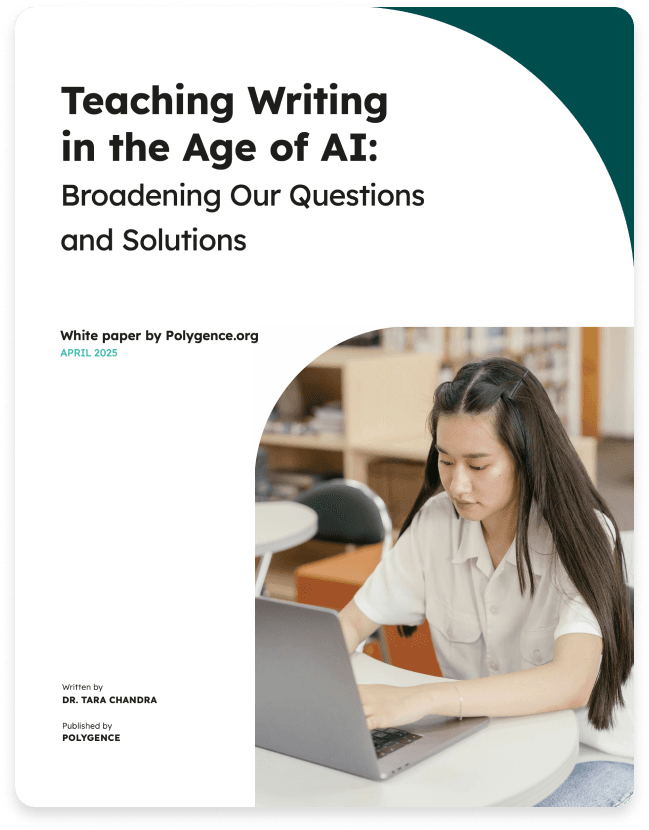
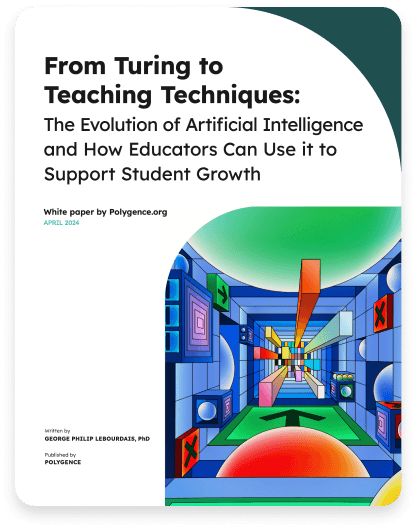
From Turing to Teaching Techniques: The Evolution of Artificial Intelligence and How Educators Can Use it to Support Student Growth
This paper traces the invention of artificial intelligence from computing pioneers like Alan Turing and John McCarthy to its current use by educators in high school and college classrooms. It explores initial dreams for what AI technologies might accomplish, highlights key moments of its development, and how that history has led to the current breakthrough of Large Language Models. After presenting expert tips for adopting AI use into teaching and counseling practices, it concludes with an example of how blending artificial intelligence and human mentorship can increase access to individualized learning support in the future. Download this paper to learn:
The origins of Artificial Intelligence in theory and practice
How chatbots are driving changes to secondary and higher education academic policies
Practical examples of how to use AI to advance student learning, from college classrooms to online programs like PolyPilot
Great Work - Why Feedback is so Important for Students and How to Make it More Effective
As any seasoned teacher will tell you, giving feedback to students is one of the most important parts of their job. But delivering the right kind of feedback at the right time is much easier said than done. In this white paper, we define the most important kinds of pedagogical feedback as well as 4 traits that can help teachers, mentors, and counselors deliver it more effectively. We also describe cutting-edge collaborations between Polygence and researchers at Stanford University and the University of Texas Austin that measurably enhance teaching and learning on our research platform. Download this paper to learn:
Why proper feedback is essential for student learning and growth
Four proven criteria that make feedback more effective
How new technologies are empowering teachers to give better feedback and students to develop a growth mindset
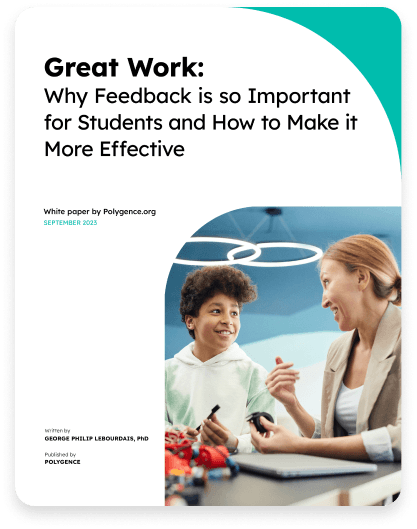
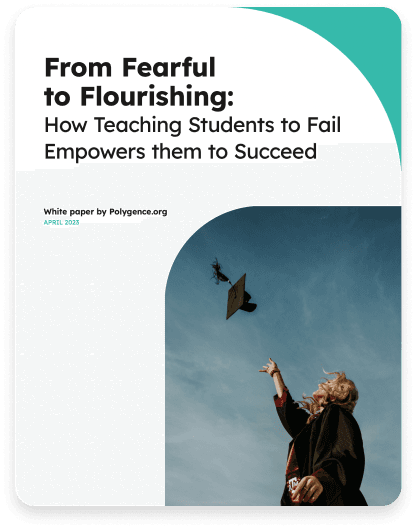
From Fearful to Flourishing - How Teaching Students to Fail Empowers them to Succeed
This white paper contributes to a growing movement among researchers, teachers, and university presidents to rehabilitate failure in the eyes of students, families, and other educators. As part of the broader mission at Polygence to empower students to be the best version of themselves, the following pages offer a number of important insights that students and educators alike can use to reframe their understanding of failure and leverage it to their advantage in the learning process.
Paths to Resilience - How Passion Projects, Positive Storytelling and Portfolios Can Support Student Mental Health
As the covid pandemic ebbs and schools return more or less to normal, another epidemic continues to afflict students: a crisis of mental health. This white paper outlines the scope of this problem and, importantly, provides actionable steps to help educators support positive student outcomes.
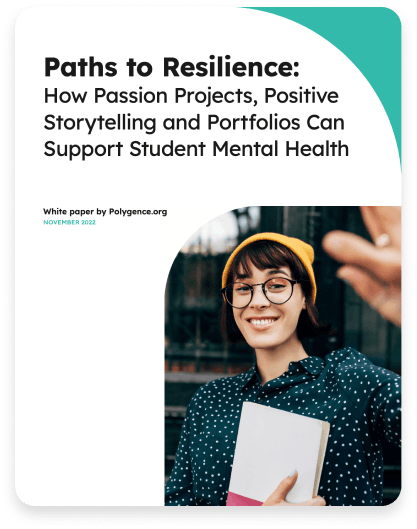
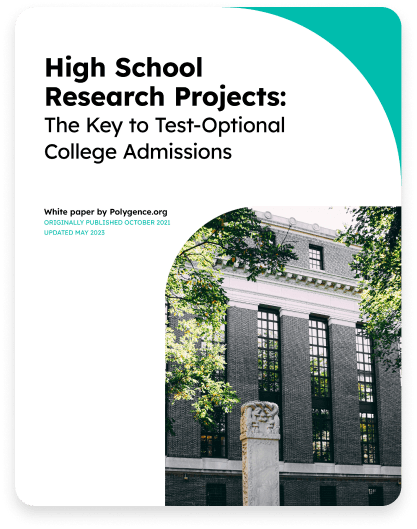
High School Research Projects - The Key to Test-Optional College Admissions
The lawsuit Students for Fair Admissions, Inc. v. President and Fellows of Harvard College, and the ultimate ruling on the case by the U.S. Supreme Court, represents a watershed moment for college admissions. Through a proprietary analysis of data made public through the lawsuit–including 160,000 domestic applications to Harvard College–this white paper reveals statistically meaningful advantages in featuring research on college applications. Download this paper to:
Learn about the rise of the research portfolio in the admissions process
The rating system Harvard and many other elite schools use to evaluate applicants
The seismic shift in away from standardized testing and the importance of independent scholarship in a test-optional world
